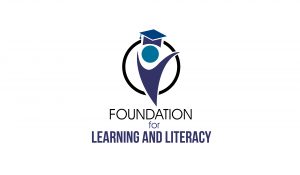FACT CHECKS
Few people would disagree with the idea that decisions about teaching should be informed by scholarship, research evidence and knowledge and understandings gained from professional practice. Often, however, as Rachel Gabriel (2020) points out, research findings are reported from a single perspective that can be misleading and cause confusion. The Foundation for Learning and Literacy will respond to such misrepresentations with Foundation Fact Checks.
A Note About Fact Checks
October 2020
The Foundation Committee has developed the following set of principles to help you evaluate information about learning and literacy.
Fact-checking the Science of Reading
April 2024
Rob Tierney and P David Pearson explore the validity of claims associated with the Science of Reading as they have appeared in social media, the popular press, and academic works.
The book offers a comprehensive review of these claims—analyzing the evidence, reasoning, assumptions, and consequences associated with each claim—and closes with ideas for moving beyond the debates to greater consensus or accommodation of differences. The book is a must read for educators involved in teaching reading, as well as parents, policy makers, and other stakeholders.
Key words: Fact check Phonics Explicit instruction Systematic phonics instruction Synthetic phonics
Teaching writing in Australian classrooms
August 2021
This
Foundation for Learning and Literacy Fact Check is responding to recent
misinformation being spread about the teaching of writing in both primary and
secondary classrooms in Australia. These misinformed accusations paint an
unfair, often deficit picture of teacher education programs claiming that
preservice teachers are not taught how to teach writing explicitly.
Furthermore, teachers are said to not have the necessary skills to teach
writing in our classrooms. This Fact
Check addresses these issues and briefly examines some facts about teaching
writing in Australian classrooms.
Key words: Fact Check Writing Teacher
education Explicit teaching Writing workshop Writing principles of an
effective writing classroom
Link to Touchstones
1, 3, 4, 5, 7, 9
Teaching phonics 'first' is not new
May 2021
We
need to focus on meeting the needs of individual children in helping them learn
to read rather than teaching ‘a method of reading’ (Reid, 2006, p.16). No one
method can be the ‘right’ method for all children – quality teachers will draw
on a diverse range of strategies and approaches to teach to the diverse needs
of the children in their classrooms.
Key words: Reading Phonics
Fact Check on Defining Effective Reading
September 2020
Continued and often heated debates about how teachers and parents can best help young children learn to read are closely related to different definitions of, and understandings about, what effective reading is. This Fact Check discusses two approaches to defining effective reading and argues that it is imperative to adopt a definition of reading that privileges meaning-making. It acknowledges that reading is a highly complex and multi-dimensional meaning-making process that must be underpinned by a repertoire of diverse practices and strategies that respond to the needs of individual learners.
Key words: Reading Phonics Intervention Engagement
Fact Check on What Makes for Systematic Teaching of Phonics
Fact check statements are only available on the Foundation for Learning and Literacy website.
Some recent public commentary around learning to read and write is misleading and false. One such claim is that that all students should receive the same synthetic phonics program in the same sequence and in the same way and for the same amount of time. This is not supported by research.
Key words: Fact check Phonics Explicit instruction Systematic phonics instruction Synthetic phonics
Fact Check on
Clarifying a Balanced Literacy Approach
Fact check statements are only available on the Foundation for Learning and Literacy website. Recently in press articles, some commentators have provided a misleading view of what many systems, schools and educators know as a ‘balanced literacy approach’ claiming it does not attend adequately to phonics instruction. It is important that the expertise of those teachers and school leaders who are effectively using a balanced literacy approach is not undermined.
Key words: Fact check Balanced literacy Reading Explicit instruction Phonics
